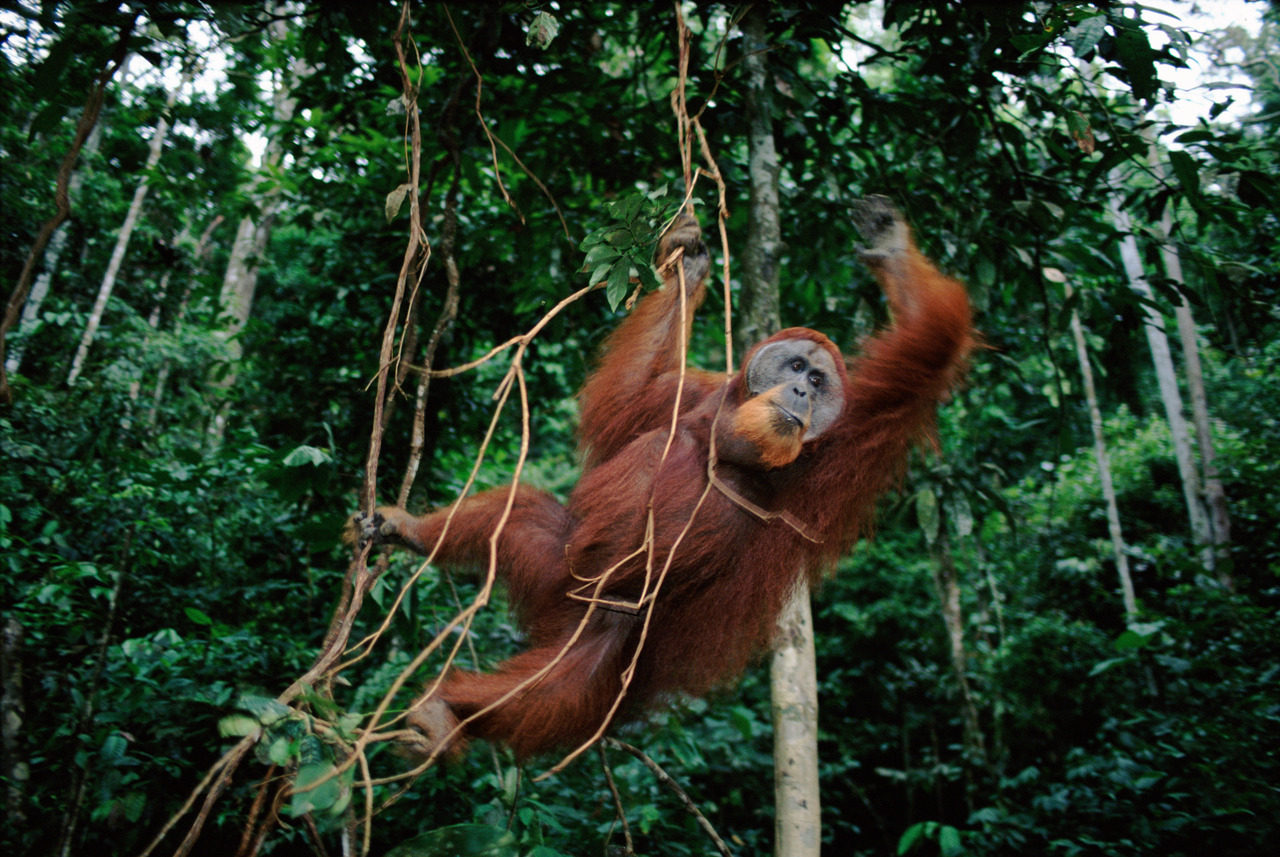Amazon Web Services (AWS) is collaborating with the World Wildlife Fund for Nature Indonesia (WWF-Indonesia) to accelerate efforts to save critically endangered orangutans in Indonesia.
Orangutans are among the most intelligent primates on earth, capable of constructing, using tools, and living in colonies with distinct cultures. Unfortunately, human activities such as years of poaching, long-term destruction of habitat, and the illegal pet trade have caused severe declines in the orangutan population. Bornean orangutan populations have dwindled by more than 50 per cent over the past 60 years. Their habitat has also been reduced by at least 55 per cent over the past two decades.
Comprising of three species of great apes native to Indonesia and Malaysia, orangutans are largely solitary and spend much of their lives on trees, complicating conservationist efforts to accurately measure their population.

The old way
Since 2005, WWF-Indonesia has assessed the health of orangutan populations and conserved their 568,700-hectare habitat in Sebangau National Park in Central Kalimantan, Indonesia. The laborious task requires experts and local community volunteers to go into the field daily.
This involves finding orangutans, photographing them, downloading images to local computers at the basecamp, and transporting the data back to the city for analysis by a WWF expert. This manual process of analysing each batch of thousands of photos can take up to three days. Moreover, the process could be error-prone due to the sheer volume of data.

AWS to the rescue
Using AWS technologies, WWF-Indonesia now automatically gathers images from mobile phones and motion-activated cameras at its basecamp and uploads these to Amazon Simple Storage Service (Amazon S3) where they are analysed.
WWF-Indonesia then taps into Amazon Sagemaker, a fully managed machine learning service that allows data scientists and developers to easily and rapidly build, train, and deploy machine learning models at scale. Thanks to this service, the analysis time is reduced from up to three days to less than ten minutes. Furthermore, Sagemaker increases the accuracy and specificity of the data, including measurements such as gender, ratio, and age. It also assesses the viability of populations and quickly identifies whether individuals are pregnant, ill, or suffering from injuries that require immediate medical attention.
WWF-Indonesia plans to explore the use of additional machine learning services such as Amazon Rekognition, an image and video analysis service, to further improve the speed and accuracy of its population identification and tracking efforts.
Learn more about AWS at aws.amazon.com.
Latest news
- Sony’s New WH-1000XM6: Taking Noise Cancellation to Ridiculous New Heights
- AirAsia Power Bank Policy 2025: New In-Flight Restrictions You Need to Know
- Trump Tariffs: Impact on Tech and Your Wallet in 2025
- Canon EOS R50 V: Why Content Creators Will Love This New Camera
- How to Check Unclaimed Money in Malaysia with eGUMIS (2025 Guide)
Subscribe to Vernonchan.com: Never miss a story, read stories on Feedly and Medium
Disclosure: Keep in mind that VERNONCHAN.COM may receive commissions when you click our links and make purchases. Clicking on these links cost you nothing and it helps to cover some of the costs for the upkeep of the site. While we may receive commissions, this does not impact our reviews, views and opinions which remain independent, fair, and balanced. Thank you for your support.









